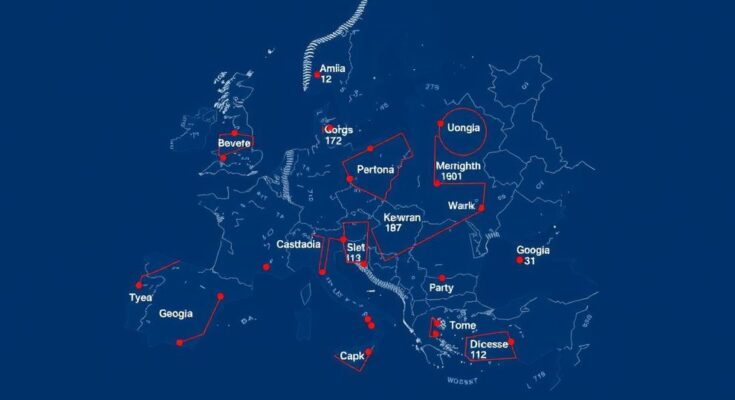Georgia faces a pivotal election that may determine its future in Europe. The ruling Georgian Dream party maintains authority but has enacted controversial laws that threaten democratic processes. A significant portion of the population supports EU integration; however, rural areas prioritize immediate stability over geopolitical ambitions. The election’s outcome is crucial, as it embodies the struggle between Western aspirations and potential Russian dominance.
Georgia is on the verge of a critical parliamentary election that could significantly shape its European aspirations. Citizens, especially in rural areas such as the Javakheti region, face complex choices balancing local stability against the backdrop of EU membership desire. Vahan Agayan, a sheep farmer, remains loyal to the ruling Georgian Dream party, which has maintained an authoritative grip since 2012. Residents express skepticism about change, emphasizing immediate issues over EU ambitions. Approximately 80% of Georgians support EU membership, yet recent legislative moves, such as the controversial “foreign influence law,” have raised concerns over democratic backsliding and halted EU accession talks. This legislative action has raised suspicions of the ruling party’s intentions and sparked fears of increasing ties with Russia. Amidst a burgeoning pro-EU movement in urban centers, voices from rural regions highlight the urgent need for employment and stability. The outcome of this election presents a stark choice between aligning with the West or risking a reversion to Russian influence. As Georgia approaches this election, the implications for its future in Europe hang in the balance.
Georgia has historically experienced fraught relations with Russia, having fought and lost a war in 2008. Following its independence from the Soviet Union in 1991, the nation sought to strengthen ties with the West, particularly with aspirations to join the European Union (EU) and NATO. The Georgian Dream party, which came into power in 2012, initially promoted civil rights and European integration but has since adopted a more authoritarian approach, leading to tensions both domestically and with Western partners. Legislative actions perceived as aligning with Russian political strategies have raised alarms over Georgia’s democratic integrity and its long-term sovereignty.
The upcoming Georgian parliamentary election poses a pivotal moment for the country’s future direction. With a strong desire among citizens for EU membership countered by the ruling party’s authoritarian methods and recent legal measures, the stakes could not be higher. The electoral outcome may either reaffirm Georgia’s commitment to Western alignment or usher in a new era of Russian influence, fundamentally altering the nation’s trajectory.
Original Source: apnews.com




